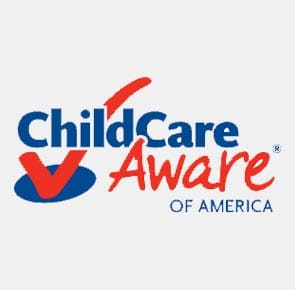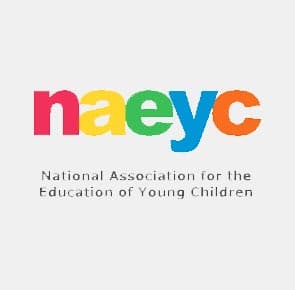What Does a Child Development Career Entail?
Are you considering a career in child development? If you enjoy working with and caring for young children, this may be a good fit for you. Childcare workers hold positions in which they are responsible for attending to the basic needs of children. This includes dressing, bathing, feeding, and overseeing play. In some cases, these professionals help prepare children for kindergarten or assist with homework assignments.
Child development professionals may work in a variety of settings. Many work for child daycares, elementary schools, or private households. A significant percentage of them are self-employed and offer childcare services from their own homes. Some of the most common child development career options include:
Read More- Daycare Teacher
- Preschool Teacher
- Teacher’s Assistant
- Childcare / Daycare Worker
- Nanny / Au pair

Components of a Successful Career in Child Development
Not everyone is well-suited for a career in child development. While working with and caring for small children can be a very rewarding experience, it is also extremely challenging at times. These professionals have various responsibilities and must demonstrate proficiency in many different areas. The most successful child development workers possess the following qualities:
- Communication skills that allow for constructive conversations with parents and other colleagues, including the effective relay of child progress
- Decision-making skills that demonstrate good judgement and the ability to respond to difficult situations or emergencies
- Compassion for others and a dedication to helping children prepare for successful futures
- Instructional ability to explain things in terms that young children can more easily understand
- Interpersonal skills that allow for productive interactions with children, parents, and other colleagues
- Patience when working with children of varying ability levels and backgrounds
- Physical stamina necessary to remain active throughout the day
How to Become a Child Development Teacher
Specific requirements to become a child development professional vary significantly by state. Keep the following general steps in mind as you begin pursuing a career in this field:
- Develop your interest in childcare
- Earn a high school diploma
- Research state requirements for employment, certification, and licensure
- Establish personal career goals
- Secure entry-level employment or research associate degree and certificate programs
- Enroll in and complete necessary postsecondary education
- Work with children professionally for two to four years
- Apply for Child Development Associate certification
What Do These Teachers Do?
 While responsibilities vary greatly from job to job, child development professionals typically supervise and monitor the safety of children. They also prepare and organize mealtimes, help maintain good hygiene, organize activities, implement curriculum, teach children about the world, and develop a diversified daily routine. Those who work with very small children will also change diapers. In most cases, these professionals are responsible for watching for signs of emotional or developmental problems, as well as reporting developmental progress to parents.
While responsibilities vary greatly from job to job, child development professionals typically supervise and monitor the safety of children. They also prepare and organize mealtimes, help maintain good hygiene, organize activities, implement curriculum, teach children about the world, and develop a diversified daily routine. Those who work with very small children will also change diapers. In most cases, these professionals are responsible for watching for signs of emotional or developmental problems, as well as reporting developmental progress to parents.
Typical Online Educational Requirements
If you are interested in enrolling in a child development program offered by a trade school, you will have to complete the necessary requirements. In most cases, these include:
- Being at least 16 years old (although some programs set 17 as the minimum)
- Holding a high school diploma or GED
It is important to realize that some community colleges offering vocational training may have additional requirements. They may, for example, stipulate that you have certain standardized test scores (SAT or ACT).
Typical Certifications Needed
 Certification requirements vary per state. While most do not require entry-level employees to hold a national recognized credential, many states do expect individuals in higher positions to do so. Most frequently, child development professionals obtain the Child Development Associate (CDA) credential.
Certification requirements vary per state. While most do not require entry-level employees to hold a national recognized credential, many states do expect individuals in higher positions to do so. Most frequently, child development professionals obtain the Child Development Associate (CDA) credential.
The CDA credential is offered by the Council for Professional Recognition. Candidates must hold, at minimum, an associate or bachelor degree from an accredited institution in one of the following:
- Early Childhood Education / Child Development
- Elementary Education / Early Childhood Education
- Home Economics / Child Development
Additionally, candidates will need two to four years of professional experience in a child care setting, serving children from birth to five years old.
Find Your Online Child Development Program
Academic Standards for a Degree or Certification
Whether you plan to pursue an online associate degree or complete a certificate program at an accredited institution, you will be expected to meet certain academic standards. All vocational schools, colleges, and universities set guidelines for their students. While expectations vary, the most common is a minimum grade point average (GPA).
GPAs are measured on a 4.0 scale. If your GPA drops below the institution’s minimum average, you can be placed on academic probation or suspension. Most schools also have very strict policies regarding cheating and plagiarism. If you are caught breaking either of these rules, it can result in academic probation, suspension, or even permanent dismissal.
Degree & Certification Options
Individuals interested in a child development career have educational requirements that vary by state. Some states have entry-level childcare jobs available to individuals with nothing more than a high school diploma or equivalent. Many states, however, have additional expectations, especially for people who plan to pursue administrative positions. Many professionals need some sort of postsecondary education and/or an early childhood education credential.
There are several different educational opportunities for people interested in child development. You can enroll at either a trade school or community college, or earn a certificate. Your specific career goals will dictate which option is best for you.
Undergraduate Certificate
Many colleges and universities offer undergraduate certificates in child development and related topics. These programs generally provide a brief introduction to the field and cover basic information necessary to be successful in the profession. Certificate recipients are usually qualified for entry-level employment.
While there are numerous certificates available, a popular selection is the Early Childhood Education (ECE) certificate. This is available at several institutions.
Course requirements also vary, as the length of these programs ranges from 12 credit hours and up.
Common coursework includes:
- Curriculum Development
- Guidance and Discipline
- Early Childhood Literacy
- Health, Safety, and Nutrition
- Art and Creative Development
Find Online Child Development Schools
Trade School Certificate or Diploma
Many trade schools also offer certificates and diplomas in child development and related topics. Those enrolled in these online programs generally gain a basic understanding of the field and learn the skills necessary to be successful. Afterward, most become childcare workers employed by daycares, preschools, churches, camps, or charities.
Trade school certificates can take a little as a few weeks to complete, while a diploma in child development could require up to two years.
Course requirements also vary, but common classes include:
Common coursework includes:
- Emotional Development
- Health and Safety
- Creative Expression and Play
- Curriculum Development
- Assessing Academic Needs
It is also worth noting that some trade schools offer the opportunity to specialize. While the diploma may be in child development, students can choose a sub-field of interest, such as:
Students can choose a sub-field of interest, such as:
- Administration/Leadership
- Child and Family Studies
- Child Development
- English Language Instruction
- Infant and Toddler Care
- Special Needs
Online Associate Degree
Another viable option is to enroll in an online associate degree program in child development. These are designed to provide a basic introduction to the field and often focus on the physical, emotional, behavioral, and language development of infants, toddlers, preschoolers, and kindergarteners. Graduates can choose to enter the workforce, pursue certification, or enroll in higher education.
Most online associate programs consist of 60 credit hours of coursework and take full-time students about two years to complete. Course requirements also vary, but common classes include:
Common coursework includes:
- Child Development Theories
- Cognitive Development
- Child Health and Safety
- Behavioral Management
- Working with Exceptional Children
- Administration/Leadership
A specialization in administration and/or leadership is an optimal choice for someone interested in higher-level positions in child development. Coursework often focuses on the creation and implementation of early childhood programs. These are framed to be applicable to a wide range of age groups. In addition to basic child development curriculum, students can expect to take classes that will develop skills in hiring procedures, compliance with state regulations, budgeting, and other managerial responsibilities. Additionally, most program options provide an introduction into training, supervision, and mentorship. - Child Development
A specialization in child development is ideal for people preparing to become leaders in the education field. The curriculum is often designed to center around topics that will complement, supplement, and enhance prior coursework. Classes cover topics like family and community engagement, early childhood education, and early childhood curriculum. The goal is to help students tailor their skills so that they can effectively reach children at all developmental levels. Most online programs strive to build an awareness and understanding of the natural milestones in child development. - Infant and Toddler Care
A specialization in infant and toddler care is perfect for individuals seeking to strengthen their knowledge and skills in early childhood education. Coursework often explores topics like social development, emotional development, effective activities, and behavior management, all geared specifically to address infant and toddler needs. The goal is to provide those enrolled with the ability to design a developmentally appropriate environment and curriculum. Students will learn how to properly care for children in this age group, as well as how to observe and assess them accurately. Additionally, most online program options provide an introduction into working with infants and toddlers who have special needs.
Search Programs Offering Child Development Majors
Career Outlook
According to the Bureau of Labor and Statistics (BLS), the median hourly wage for childcare workers in 2023 was $30,370. However, job outlook for those in the field is far below average. The market for child development professionals is expected to decrease by 1% between the years 2023 and 2033. As childcare is still greatly needed, the reasons for this are unclear.
It's important to note that level of education has a large impact on the wages earned for these professionals. While many entry-level positions do not require a postsecondary degree, those who do choose to pursue further education tend to earn more money. Certificates and certifications are also beneficial and can result in better pay.
Important Questions to Ask (FAQ)
How long does it take to earn a this degree or certification online?
Generally, it takes most full-time students two years to complete an online associate degree in child development. College certificate programs, however, can take less time to finish. Because this can vary, it is important that you pay close attention to the necessary graduation requirements and anticipated graduation timeframes before enrolling.
How much does an online program cost?
The total cost of your trade school degree in child development can vary significantly. The amount you will be expected to pay is impacted by the school type, program of interest, and location. According to the College Board’s Trends in Higher Education Series, students paid around $26,000 for in-state tuition to attend one year at a four-year public institution. The average total cost to attend a two-year trade school, on the other hand, is closer to $3,600.
How many students graduate “on time,” or within 12 to 24 months?
Most online degree and certificate programs will advertise average graduation timeframes on their websites. An associate degree generally takes two years to complete, while most certificate programs take less. Some institutions have stricter requirements that can cause delays. It is important to verify expected graduation timeframes and rates prior to enrolling.
What kind of accreditation does the online program hold? How it is regarded in the field?
 When looking for a certificate or degree program, it is very important that you pay close attention to institutional accreditation standings. Accrediting agencies work with field experts to establish academic standards and requirements. While schools are not required to be accredited, the institutions that do go through the accreditation process offer programs that are regionally or nationally recognized. If you choose to earn a degree from a college that is not accredited, you may have trouble transferring credits, becoming certified, and/or finding employment.
When looking for a certificate or degree program, it is very important that you pay close attention to institutional accreditation standings. Accrediting agencies work with field experts to establish academic standards and requirements. While schools are not required to be accredited, the institutions that do go through the accreditation process offer programs that are regionally or nationally recognized. If you choose to earn a degree from a college that is not accredited, you may have trouble transferring credits, becoming certified, and/or finding employment.
One prominent accrediting agency to look for is the National Association for the Education of Young Children (NAEYC). This organization currently accredits 1,300 associate degree programs. Other acceptable regional accreditation agencies include:
- Middle States Commission on Higher Education (MSCHE)
- New England Commission on Higher Education (NECHE)
- Southern Association of Colleges and Schools Commission on Colleges (SACSCOC)
- Accrediting Commission for Community and Junior Colleges (ACCJC)
- Northwest Commission on Colleges and Universities
If you opt for a regionally accredited institution, note that your certificate or degree may not hold as much weight if you relocate to a different region in the future.
Find Your Online Child Development Program
Available Scholarships
Paying for your degree in child development can be stressful. Like traditional colleges and universities, however, trade schools do offer financial aid options. In addition to loans and grants, you can apply for scholarships to help cover your tuition and other education-related expenses. Scholarships are greatly preferred because the money provided does not have to be paid back after graduation.
While there are many trade school scholarships available, some of the best opportunities for interested in child development are:
-
High School Senior College Scholarship Contest
Amount: $2,000 (10 Awards)
Deadline: Varies
The High School Senior College Scholarship Contest is funded by the American Fire Sprinkler Association (AFSA). Each year, the AFSA provides a total of $20,000 in financial aid to graduating high school seniors. The maximum amount a single individual can receive is $2,000. The recipients are selected randomly and the scholarship is paid directly to the educational institution reported.
-
Coca-Cola Scholars Program Scholarship
Amount: $20,000
Deadline: Varies
The Coca-Cola Scholars Program Scholarship is funded by the Coca-Cola Scholars Foundation, which supports more than 1,400 exceptional college students each year. The Coca-Cola Scholars Foundation provides 150 recipients a financial aid award of $20,000. Applicants must be a current high school student who is planning to attend a postsecondary institution.
-
College JumpStart Scholarship
Amount: $1,000
Deadline: April 15
The College JumpStart Scholarship is funded by JumpStart and is intended to motivate students to be successful. Each year, JumpStart awards a first place financial aid prize of $1,000. The scholarship is open to 10th-12th graders, college students, and non-traditional students who are committed to going to school. The award is completely merit-based; financial need is not considered.
-
Agnes M. Lindsay Scholarship
Amount: Varies
Deadline: FAFSA Deadline
The Agnes M. Lindsay Scholarship is funded by the Massachusetts Department of Higher Education. Each year, the Massachusetts Department of Higher Education provides varying amounts of student financial aid. The scholarship is intended for students who demonstrate financial need, are from rural areas, and plan to attend a higher education institution within the Commonwealth of Massachusetts.
Professional Organizations
Childcare workers and students studying to become childcare workers can choose to become a member of a professional organization at the state, national, and international level. While these associations and societies differ, they all offer certain benefits to their members. Advantages of joining typically include access to resources, discounts, training, certifications, and networking opportunities.
Some of the most prominent professional organizations, associations, and societies for child development professionals include:
- ACEI
- CCAA
- NAEYC

ACEI
Association for Childhood Education International
The Association for Childhood Education International (ACEI) is driven by the belief that education is an essential part of development. The organization is committed to using education as a tool to achieve global development and sustainability. Members have the opportunity to expand their education and knowledge, enhance professional skills, apply for grants, network, and share knowledge with others.

CCAA
Child Care Aware of America
Child Care Aware of America is dedicated to advancing the affordability, accessibility, development, and learning of children in child care. As the only non-profit organization that solely focuses on child care, it works with more than 400 child care resource & referral agencies nationwide. Members receive free leadership training, access to research, networking opportunities, and more.

NAEYC
National Association of the Education of Young Children
The National Association of the Education of Young Children (NAEYC) strives to promote high-quality learning for young children. They use research to influence practice and policy. NAEYC is made up of 60,000 individual members and 50 affiliates. Members gain access to resources, networking, discounted insurance, special events, lower tuition rates, and subscriptions.
If you want to work in child development, you can start today. Whether you are a high school student or current professional, there are steps you can take now that will pave the way for a successful career in the field.
Students should make an appointment with their school counselor or advisor. These professionals are trained to provide career guidance and will be able to offer suggestions relevant to your specific circumstances. Current professionals should discuss their interests with current employers and enroll in the appropriate certificate, diploma, or degree program. It is also a good idea to research state certification requirements.
Choosing an Online Accredited Vocational School
As previously mentioned, accreditation is extremely important. Avoid vocational programs that are not accredited, as you may have more difficulty transferring credits or finding acceptable employment. Additionally, some employers pay graduates from unaccredited schools less.
Most institutions have information about their accreditation status on their websites. If you have trouble locating it, call the school’s admission department to ask for clarification.
On-Campus vs. Online vs. Hybrid Programs
Many community colleges and trade schools offer three program options: traditional, online, and hybrid. Traditional programs require that students attend classes on campus, while online programs offer a distance learning alternative. While online programs are ideal for individuals with busy schedules, they do not allow for in-personal instructional opportunities or networking. To bridge the gap between these two options, some schools now offer hybrid programs. These are completed primarily online, but require students to complete short residencies to gain hands-on experience in the field.
Additional Questions
Post-Graduate Job Placement Assistance
Finding work as a child development professional after receiving your certificate, diploma, or degree will be your top priority. While the task may seem daunting, many institutions offer post-graduate job placement assistance programs. In most cases, this includes assistance with interview preparation and resume development. Some schools also offer career coaching, internship placement, and access to job fairs. If you feel these services are beneficial, look for a college or trade school that has a job placement assistance program.
Importance of Overall National Ranking
It is also important that you consider the overall national ranking of institutions you are considering. Like accreditation, these rankings can have a big impact. The higher your college or trade school is ranked, the higher your education will be regarded by employers. This means you will have more employment and advancement opportunities within the field. Conversely, selecting an institution with a low national ranking can make finding a job in child development more difficult and may result in you making less money.
sources:
- College Board
- Bureau of Labor Statistics
- CDA Professional Development Specialist Eligibility Requirements
- National Association for the Education of Young Children
- PayScale
- Association for Childhood Education International
- National Association for the Education of Young Children
- Child Care Aware of America
Search All Programs
